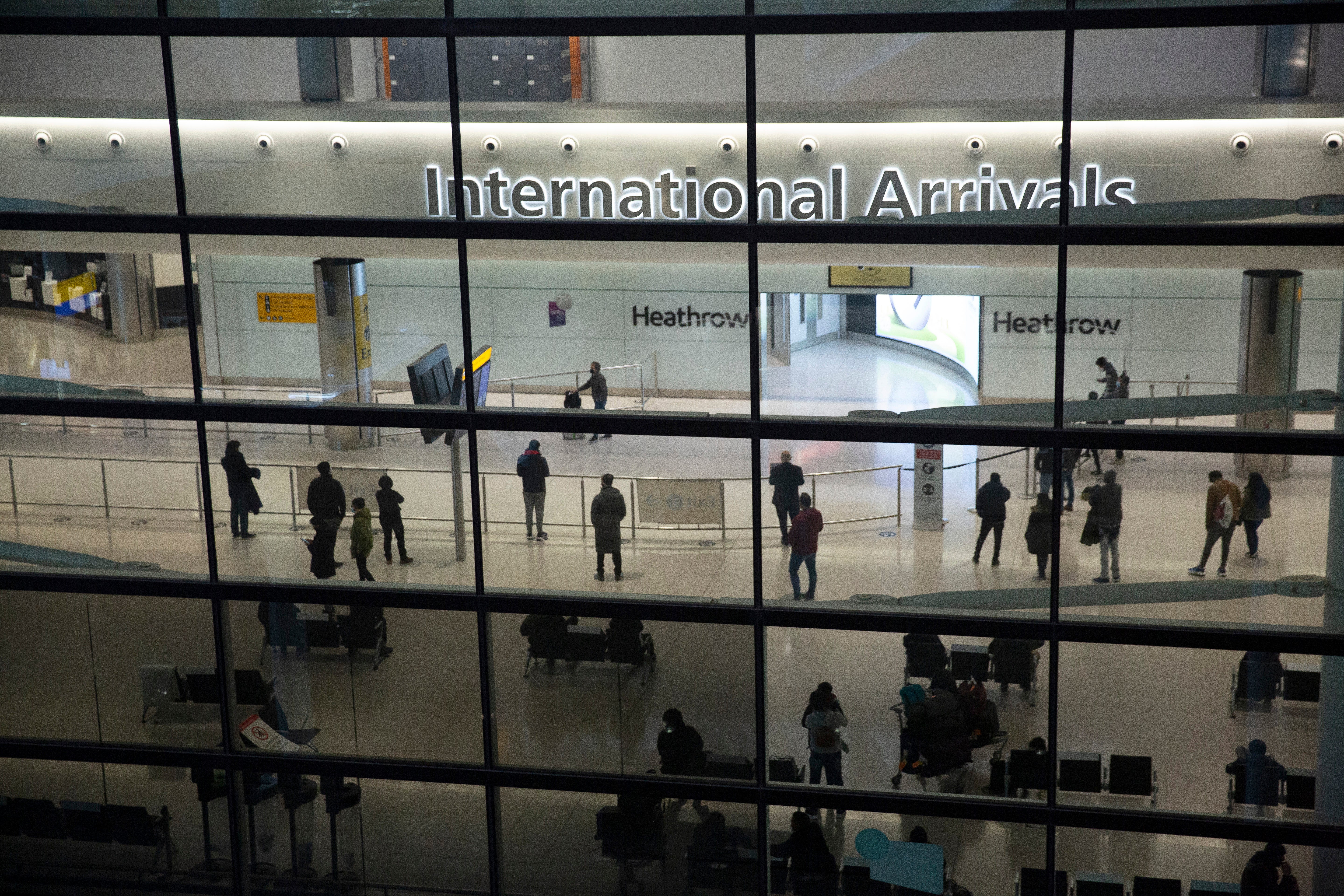War and economy push immigration to Britain to record high in 2022
Official figures show the number of people moving to Britain reached a record high of 606,000 in 2022

Your support helps us to tell the story
From reproductive rights to climate change to Big Tech, The Independent is on the ground when the story is developing. Whether it's investigating the financials of Elon Musk's pro-Trump PAC or producing our latest documentary, 'The A Word', which shines a light on the American women fighting for reproductive rights, we know how important it is to parse out the facts from the messaging.
At such a critical moment in US history, we need reporters on the ground. Your donation allows us to keep sending journalists to speak to both sides of the story.
The Independent is trusted by Americans across the entire political spectrum. And unlike many other quality news outlets, we choose not to lock Americans out of our reporting and analysis with paywalls. We believe quality journalism should be available to everyone, paid for by those who can afford it.
Your support makes all the difference.The number of people moving to Britain reached a record high of more than 600,000 in 2022, government figures showed Thursday, sparking renewed debate about the scale of immigration and its impact on the U.K.
Net migration – the difference between the number of people arriving and those leaving – was 606,000 for the year, according to the Office for National Statistics. A total of 1.2 million people moved to the U.K. in 2022, while 557,000 left.
The net figure is up from just under 500,000 in 2021. The total U.K. population is about 67 million.
The statistics office said the record level was due to a “series of unprecedented world events throughout 2022 and the lifting of restrictions following the coronavirus pandemic.” It said the number of arrivals appeared to have leveled off in recent months.
As well as people coming to Britain to work, the figure includes tens of thousands of international students and more than 160,000 people who have arrived under special programs for people fleeing war in Ukraine and China’s clampdown in Hong Kong.
Prime Minister Rishi Sunak said the immigration figure was “too high,” but he did not say what an ideal number would be.
"We’ve got to be sensitive to the needs of the (health service), the economy, but fundamentally the numbers are too high – I’m bringing them down," he told broadcaster ITV.
The high figure revived debate about Britain’s departure from the European Union, which was motivated in part by the arrival of hundreds of thousands of people from across Europe in the years before the 2016 Brexit referendum.
Supporters of Brexit said leaving the EU — which gives citizens of any member country the right to live and work in all the others — would allow the U.K. to control its borders. Many who voted for Brexit thought immigration would fall, but the opposite has been true. The U.K. still issues tens of thousands of work visas a year to fill jobs in hospitals, nursing homes and other sectors.
While the number of people moving to Britain from EU countries fell to 151,000 in 2022, the number from outside the bloc was 925,000, and India has overtaken European nations as the top source of workers.
While most economists say immigration is an economic boon to Britain, some residents say new arrivals are putting more pressure on overstretched public services and worsening a national housing shortage.
The subject of immigration also gets conflated with the emotive issue of asylum-seekers who arrive in Britain in small boats across the English Channel. The U.K. government has taken controversial steps to try to halt the journeys, including a contentious and legally contested plan to deport asylum-seekers to Rwanda.
Some lawmakers from the governing Conservative Party demanded tough new measures to curb immigration. But Conservative legislator Alicia Kearns, who chairs Parliament's Foreign Affairs Committee, warned against “knee-jerk reactions.”
She said net migration numbers shouldn't include students, adding that the U.K.'s position as an “academic superpower” is very beneficial. She added that the country needs “to fill jobs wealth creators have made," and that the U.K. has been proud to offer refuge to Ukrainians and residents of Hong Kong.